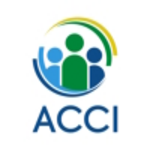
2024 Annual Conference
May 21–23, 2024
Hyatt Regency Milwaukee, Milwaukee, WI, USA
IMPORTANT NOTICE: The date, time, and room assignment of YOUR presentation is SUBJECT TO CHANGE.
Proposal authors can use this tool to see where they have been placed in the program agenda for an Oral or Poster Session.
Scroll down to search by the Submitter or Author Name, by Date/Time, or by Keywords.
Confirm your place in the schedule by following the instructionss that were emailed to you. Each presentation must have a separate paid registration. Contact the ACCI office immedicately by email at admin@consumerinterests.org to report any conflict, all corrections to the details of the presentation (including author names and the order they are listed as this is how it will be in the final program), or if you have any questions. Please be sure to reference the session title(s), date(s), and time(s) when you contact us.
C3c Financial Hardship and Emotional Well-Being Among U.S. Older Adults With and Without Alzheimer's Disease
Short Description
This study investigated the impacts of (a) financial hardship and (b) a diagnosis of Alzheimer’s disease or related dementias (ADRD) on emotional distress, and (c) whether internal coping resources, specifically mastery and optimism, mitigate emotional distress, and (d) how these associations differ by race/ethnicity among U.S. older adults. Furthermore, the present study investigated (e) how romantic relationship trajectories in later life influence emotional well-being. Analyses were based on the Health and Retirement Study (HRS), a nationally representative longitudinal data of U.S. older adults (N = 3,070). Multivariable ordinary least squares regression models predicting emotional distress were adjusted for health and sociodemographic characteristics. Results indicated that financial hardship and a diagnosis of ADRD were related to heightened emotional distress, whereas internal coping resources, both mastery and optimism, alleviated emotional distress. Compared with individuals who continuously married throughout the study period, those who were continuously never married exhibited significantly higher levels of emotional distress, whereas individuals who were divorced/separated at baseline but entered cohabiting union during the study period experienced significantly lower levels of emotional distress. Non-Hispanic Blacks and Hispanics exhibited significantly lower levels of emotional distress than non-Hispanic Whites. Moderation analyses revealed that the detrimental effect of financial hardship on emotional distress was less conspicuous among non-Hispanic Blacks and Hispanics. The adverse impact of ADRD on emotional distress was significantly more pronounced among Hispanics. Finally, the impact of optimism on emotional distress was significantly more pronounced for non-Hispanic Asian/other races, suggesting non-Hispanic Asian/other, who possessed higher levels of optimism, experienced more significant benefits in terms of mitigating emotional distress. These findings have implications for interventions aimed at improving older adults’ emotional well-being.
Type of presentation
Accepted Oral Presentation